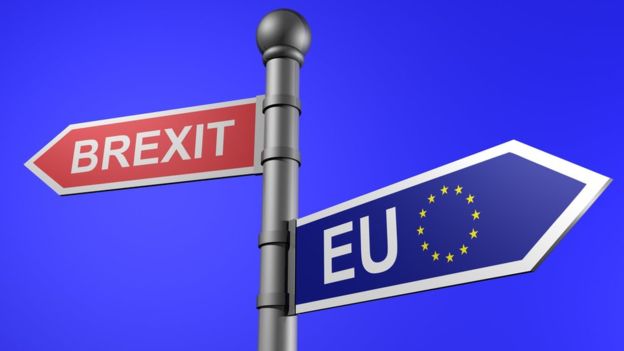Customs guide for businesses
In the absence of a Withdrawal Agreement, which would put in place a transition period until the end of 2020 (with the possibility of an extension foreseen in the Withdrawal agreement), the UK will be treated as a non-EU country for customs purposes as of 30 March 2019.
It is now urgent that businesses in the EU start preparing for the UK’s withdrawal, if they have not yet done so.
Brexit will affect your company if…
- … it sells goods or supplies services to the UK, or
- … it buys goods or receives services from the UK, or
- … it moves goods through the UK.
What does this mean?
Without a transitional period (as tabled in the Withdrawal agreement) or a definitive arrangement, trade relations with the UK will be governed by general WTO rules, without application of preferences, as of 30 March 2019.
This means in particular that:
- Customs formalities will apply, declarations will have to be lodged and customs authorities may require guarantees for potential or existing customs debts.
- Customs duties will apply to goods entering the EU from the United Kingdom, without preferences.
- Prohibitions or restrictions may also apply to some goods entering the EU from the United Kingdom, which means that import or export licences might be required.
- Import and export licences issued by the United Kingdom will no longer be valid in the EU (EU27).
- Authorisations for customs simplifications or procedures, such as customs warehousing, issued by the United Kingdom will no longer be valid in the EU (EU27).
- Authorised Economic Operator (AEO) authorisations issued by the United Kingdom will no longer be valid in the EU (EU27).
- Member States will charge VAT at importation of goods entering the EU from the United Kingdom. Exports to the United Kingdom will be exempt from VAT.
- Rules for the declaration and payment of VAT (for supplies of services such as electronic services), and for cross-border VAT refunds will change.
- Movements of goods to the United Kingdom will require an export declaration. Movement of excise goods to the UK may also require an electronic administrative document (eAD).
- Movements of excise goods from the United Kingdom to the EU (EU27) will have to be released from customs formalities before a movement under Excise Movement and Control SystemSearch for available translations of the preceding link••• (EMCS) can begin.
What should you do?
All businesses concerned have to prepare, make all necessary decisions, and complete all required administrative actions, before 30 March 2019 in order to avoid disruption.
Follow the checklist below and get to know which practical steps you need to take as soon as possible to be prepared.
Brexit checklist for traders
- ASSESS whether your business trades with the UK or moves goods through the UK.
If it does:
- REGISTER your business with the national customs authority, if you have not done so for trading with non-EU countries. You can find the contact details of the national customs authorities in this list.
- ASSESS whether your business is ready to continue trading with or via the UK by having the necessary:
- human capacity (staff trained in customs matters);
- technical capacity (IT systems and others); and
- customs authorisations, such as for special procedures (storage, processing or for goods under the “specific use” rule).
- ENQUIRE with your national customs authority about the existing customs simplifications and facilitations that are available for your business, such as:
- simplifications for transit procedures.
- comprehensive guarantees, with reduced amounts or waivers;
- simplifications for placing goods under a customs procedure;
- CONSIDER applying for an Authorised Economic Operator (AEO) status from your national customs authority.
- If you are registered for the VAT Mini-One-Stop-Shop in the UK, REGISTER in an EU27 Member State.
- If you have paid VAT in the UK in 2018, SUBMIT your VAT refund claims sufficiently in advance of 29 March 2019 for them to be processed before that date.
- TALK to your business partners (suppliers, intermediaries, carriers,…) as Brexit might also impact your supply chain.
- CHECK our page with e-learning modules on Customs and Tax to see whether you or your staff needs extra training.
For more detailed technical information, you can consult the European Commission’s webpage which contains “preparedness notices” on a wide range of topics, including Customs and Taxes. To get additional information and assistance, contact your national authorities, your local Chamber of Commerce and Industry, or your industry association.
Source: EU


Write a Comment